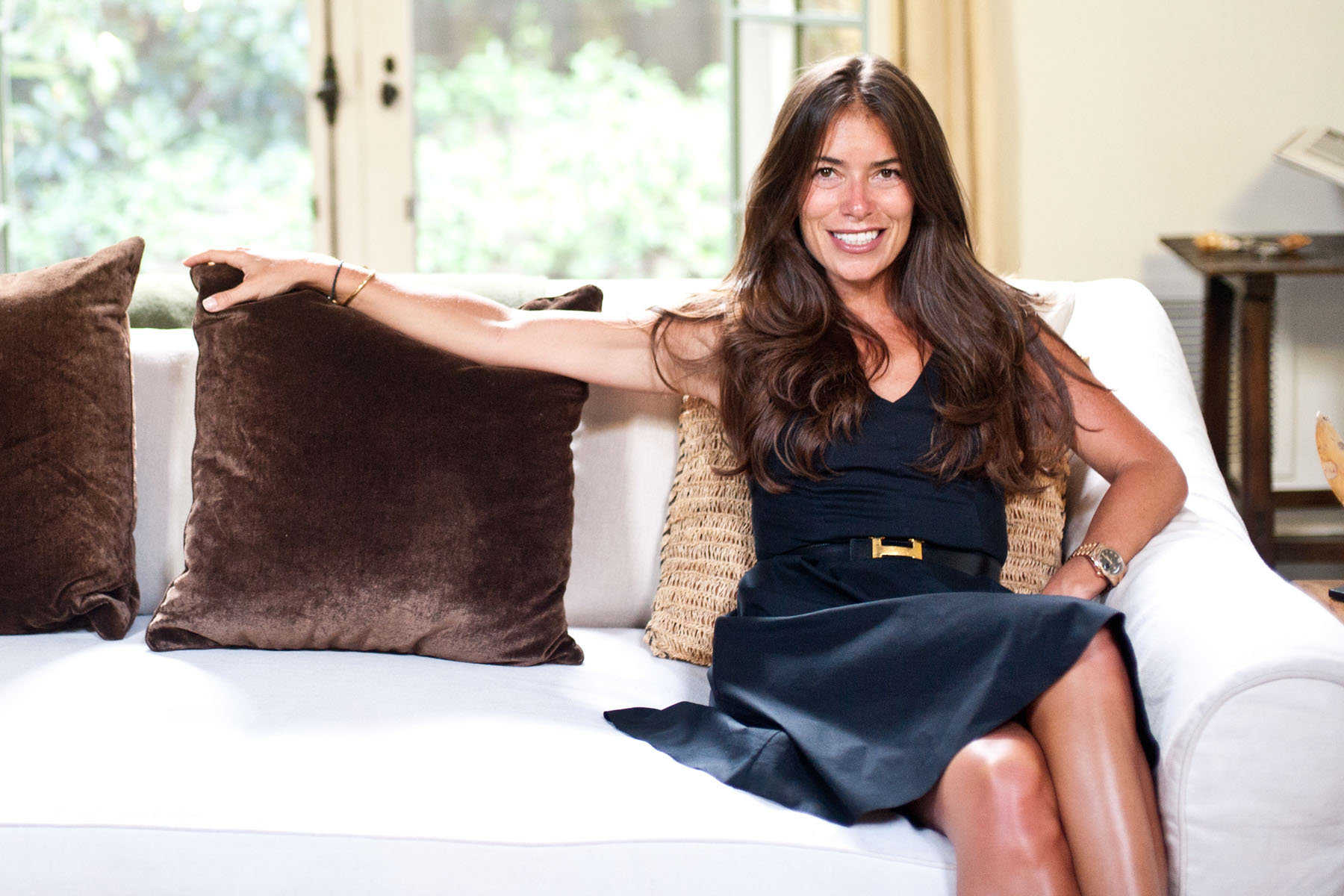
Laura Wasser '94
'Disso Queen' Dishes on Connecting with Clients
and How Family Law Became a Family Business
When thinking back on her childhood, Laura Wasser ’94 admits that when her parents gave her the initials L.A.W. at birth, it may have been the first sign of an ulterior motive.
“In retrospect, I see that maybe they both pushed me a little bit, but they never said to me, ‘you should be a lawyer.’ They were much smarter than that,” Wasser said.
Her father, Dennis, has long been one of Los Angeles’ most successful and sought-after family law attorneys, and now Laura can call herself the same. Wasser, 43, is a partner, along with her father, at the Century City firm of Wasser, Cooperman & Carter with a client roster that reads like the guest list at Hollywood’s annual Vanity Fair Oscar party. Kim Kardashian, Angelina Jolie, Maria Shriver, Britney Spears and Christina Aguilera have all called on her services through the years. Wasser has represented so many celebrities over the past decade that tabloids have dubbed her the “Disso Queen,” referring to the high rate of success she has in procuring dissolution of marriage agreements.
Wasser grew up helping out around her dad’s office, which she said gave her a strong work ethic at an early age. She tried out all sorts of jobs while an undergraduate student at UC Berkeley, including teaching aerobics and working the door of a night club. But Wasser, named among the Southern California Super Lawyers, said she never planned on following in her dad’s footsteps. It wasn’t until her third year of college, when she decided to major in rhetoric, that Wasser realized her self-described “analytical mind” would probably be best suited to a legal career.
“I am somewhat litigious and argumentative in my daily life, so it suits me,” she said with a laugh.
While Wasser may be accustomed to dealing with the international media – even appearing in photo spreads for Elle and Vogue magazines – she said journalists know to look elsewhere for juicy personal details about her clients or a salacious quote.
“We try to settle [cases] quietly. I try to do it in a way that doesn’t make a mockery of the process – that doesn’t try the case in the court of public opinion,” Wasser said. “My job is to shield [clients] from that as much as I possibly can and not capitalize on it myself. I see some of my colleagues doing that sometimes, and I don’t know if that’s appropriate.”
Wasser came to the profession with first-hand experience in her field of practice. She met her first husband while at Loyola, and the couple divorced in 1993 right after she graduated and passed the bar exam. Wasser is also raising two sons, so she can speak to her clients both as someone who has gone through a divorce herself and as a mother.
“I’m not going to help them try to sort through their feelings, but I am going to say to them, ‘Here’s me, who’s done this day in and day out and has gone through it personally, and here’s what I can say to you that might make it easier to get through,” she said.
With almost 20 years of family law experience under her belt, Wasser said that is has gotten easier over time to deal with clients whose emotional bitterness might be causing them to make irrational decisions and help them move into the next phase of their lives. Wasser said doing things the “right way” is how she earns the trust and respect of her clients, because they know that “the wrong way just means more billable hours.”
Wasser has become so good at advising people on the best way to end a relationship that she’s writing a book about it. The as-yet-untitled tome is due out in fall 2013 from St. Martin’s Press, and she said it will be a 21st century guide to extricating yourself from negative relationships “in regard to our families, children and finances.”
Wasser credits Loyola for helping her learn not just what the law says, but how it works in real life. She points to Karl Manheim’s first-year Constitutional Law class as one that she still benefits from today.
“Those are still things that I will apply when I’m thinking about something that may not come readily to me in terms of family law. Sometimes I’ll say, ‘Wait a minute, that’s totally not constitutional,” Wasser said.
It was also at Loyola that Wasser first learned the value of pro bono work. Professor Sande Buhai encouraged the young law student to volunteer with the Western Law Center for Disability Rights, now the Disability Rights Legal Center, and Wasser sits on the board of the Harriett Buhai Center for Family Law, which provides free legal counsel to low-income families and victims of domestic abuse.
Wasser said that family law should interest new and future Loyola graduates because it allows attorneys to understand many other types of law, while also giving them a crash course in business as they figure out the intricacies of things like residual payments for film, television and music. But most importantly, she said family law provides lawyers with the opportunity to help clients emerge as stronger individuals from one of the most trying experiences they’ll ever face.
“You really get to live a chapter of these people’s lives. I learn something every day, and I love that about myself,” Wasser said.